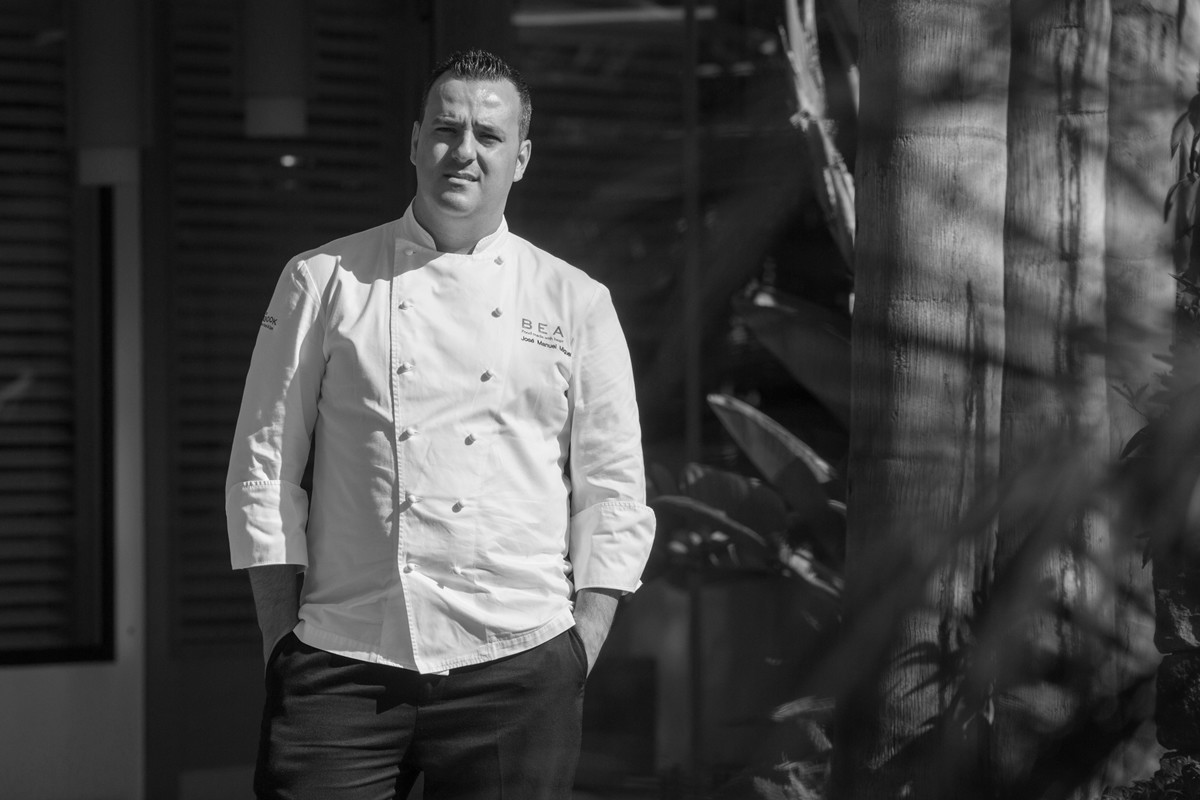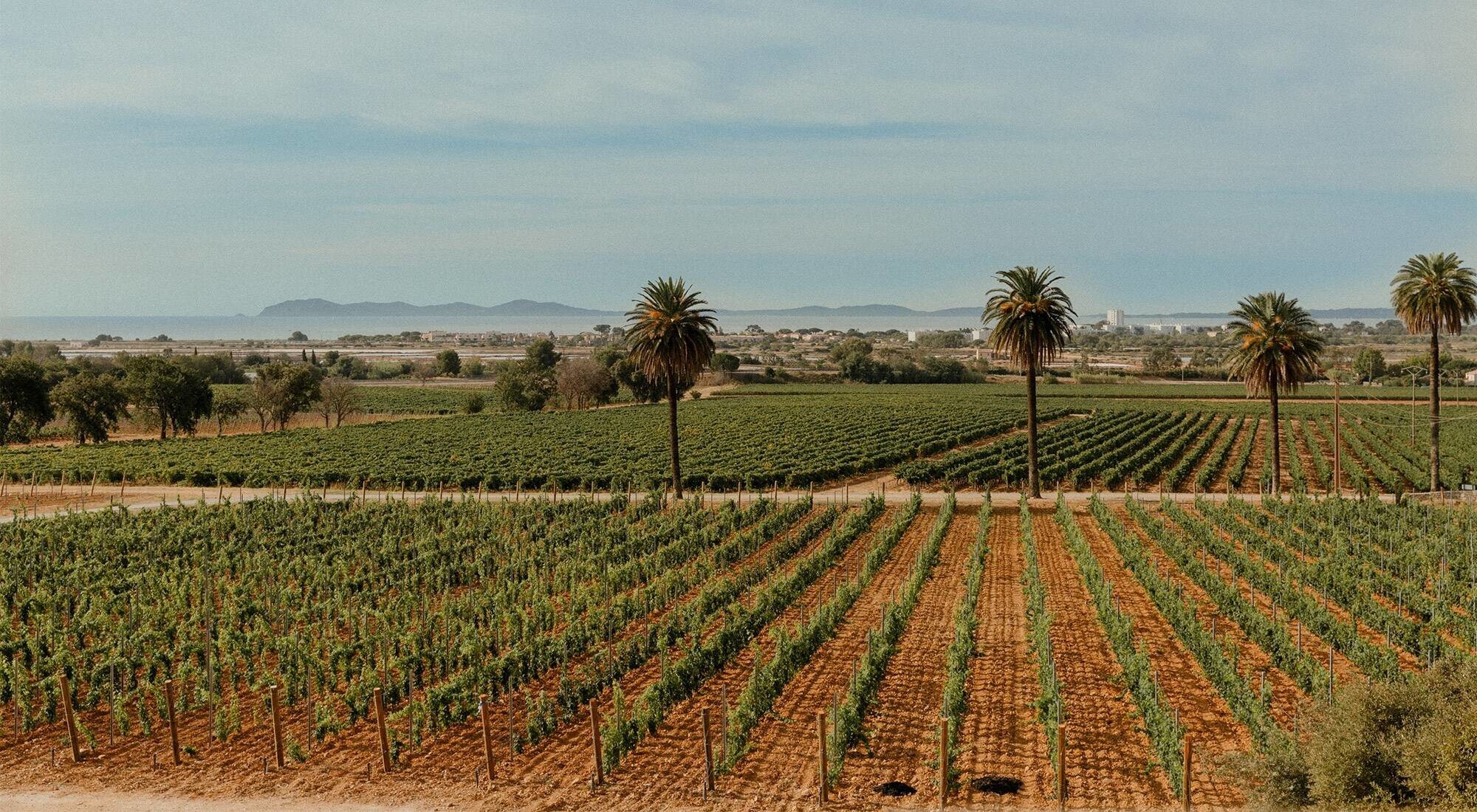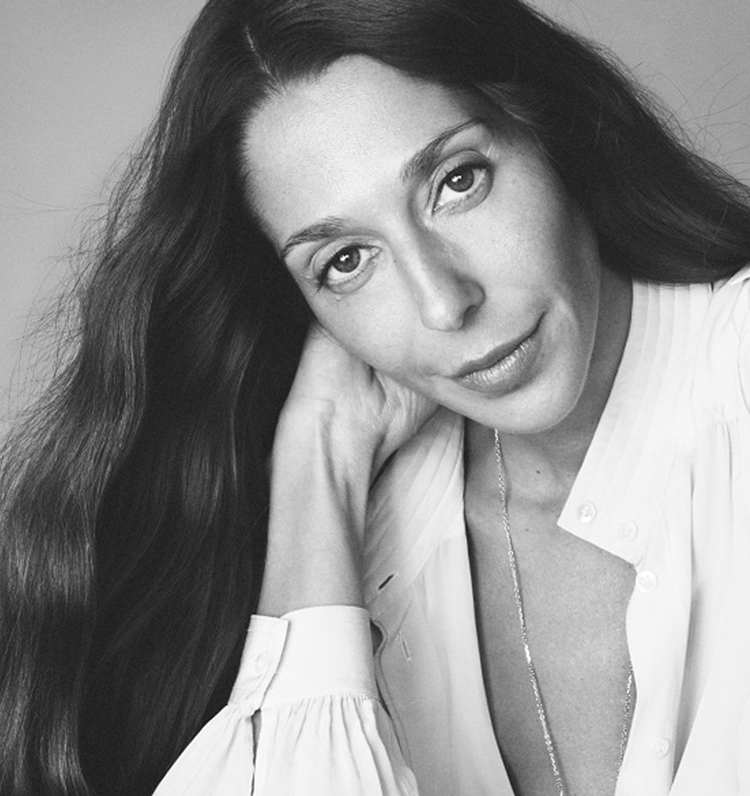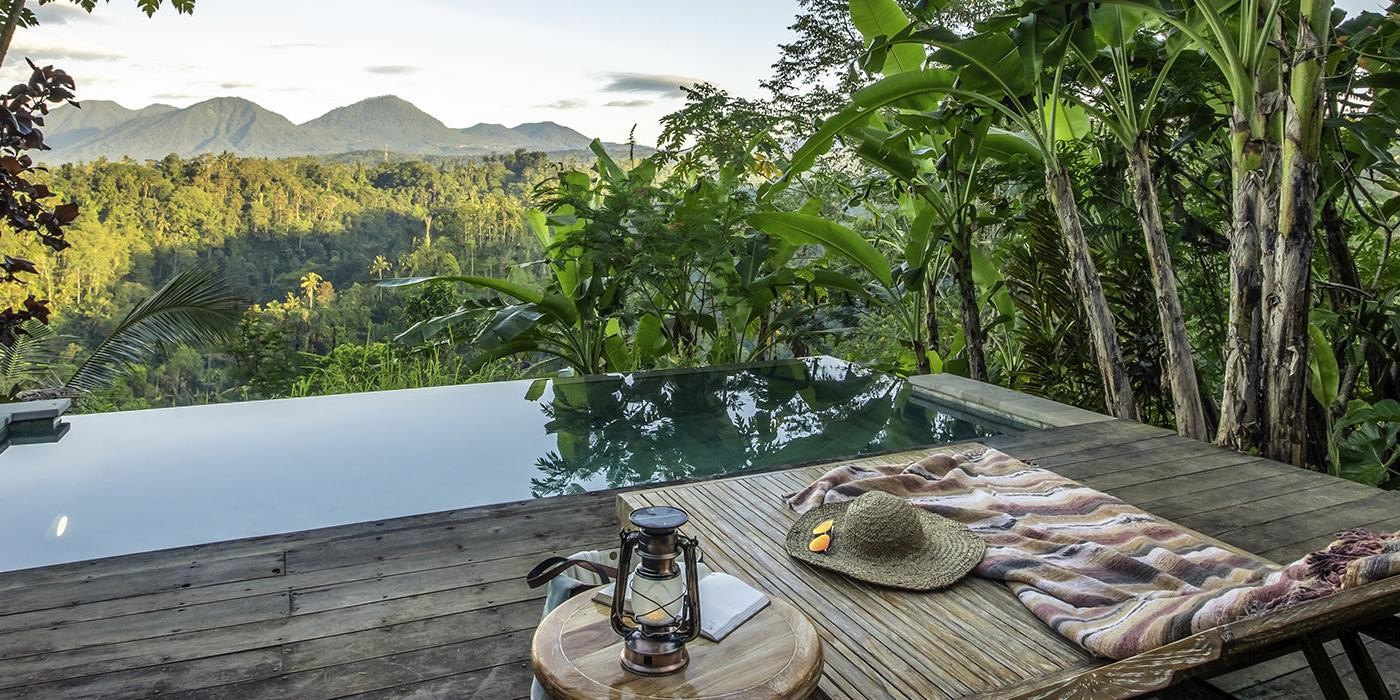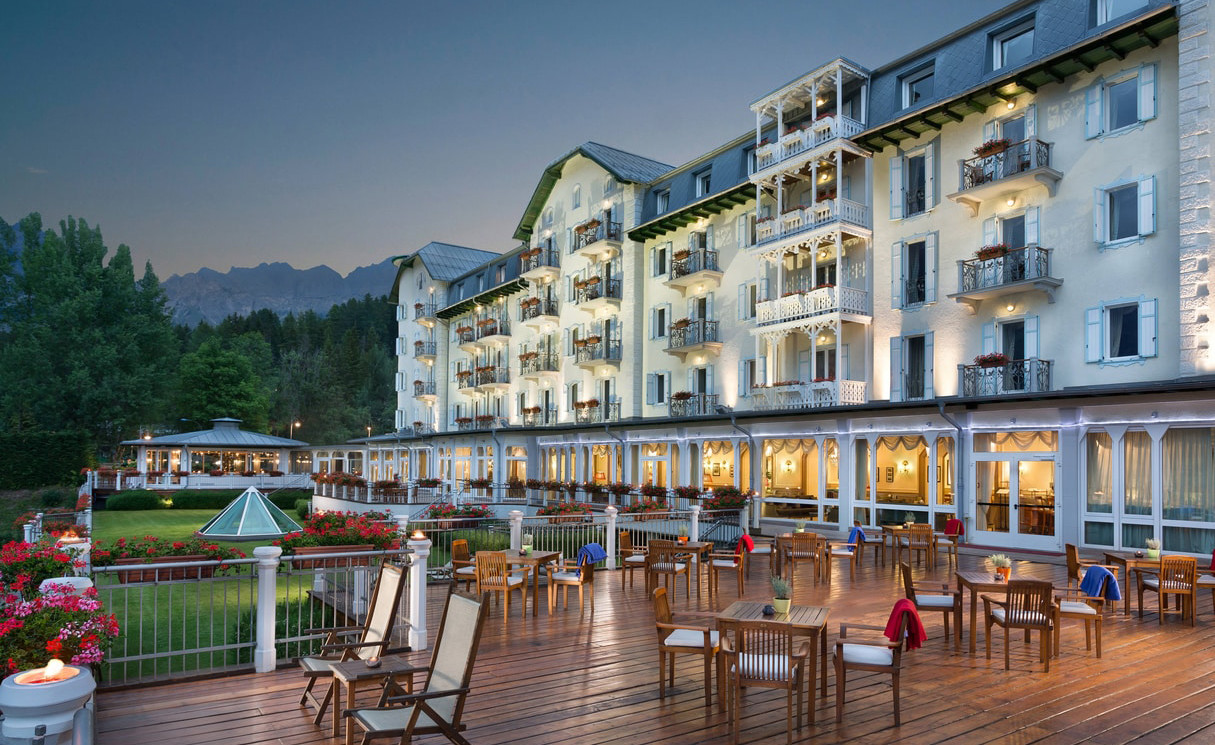Executive chef of the attractive “Gastro Boutique Hotel” concept The Cookbook in Calp (Alicante province), Jose Manuel Miguel has followed, over a little more than twenty years, a daring and largely rewarded path. Trained by celebrity 3-star chefs Martín Berasategui and Juan Mari Arzak, he also busied himself in the kitchens of the Epicure*** and Bristol, with Eric Frechon, as well as on the stoves of the Ritz Madrid.
Crowned with 2 stars in Paris, one for Il Vino, another for Goust, which is a unique achievement for a Spanish chef, he was awarded the Best Culinary Creation prize by the Lebey Guide. Since 2016, Jose Manuel Miguel has been managing the restaurants Komfort and Beat and awarded 1 Michelin star in 2018 and 2 Soles Repsol. Determined to astonish his hosts with an unprecedented experience, his creations sublime Mediterranean products by combining them with French cuisine. Awarded the first innovation trophy “Sapiña” in 2019 by the "Gastronomic Sciences Association" of Valencia University, this enchanting chef ceaselessly invents astonishing associations, declined in flavoury harmonies and modern refined achievements.

Vendom.jobs – At this point in time, how can we not begin this conversation with this simple question: how are you, Jose Manuel?
Jose Manuel Miguel – Although the situation is problematic, I try to think positively and to enjoy the extra time I get to spend with my family.
V.J. – Chefs have been particularly committed during the crisis. How do you envision pursuing this dedication in a world which will not be exactly as it was before?
J. M. M. – In my view, our DNA is made to fight, to adapt, and to overcome each crisis. This is how we have always faced problems. I remember the 2008 crisis: it was a heavy blow to our industry, which had to reinvent itself to overcome it. Now, we will go through the same process. We will reinvent ourselves and come back stronger.

V.J. – Let us talk about more timeless subjects if you wish. According to your experience in both countries, what could, in your view, basically oppose and, on the contrary, unify the Spanish and French gastronomy worlds?
J. M. M. – Honestly, I believe that the greatest difference between the two countries is that the French institutions respect the industry, aware that it is a particularly important driver for the national economy. Therefore, they turn to catering and tourism. In Spain, we lack this institutional support. What unites us is noticeably clear: our high-quality level and our love for gastronomy.
V.J. – Who are the historical Spanish chefs who were, or could have been, your models?
J. M. M. – Martín Berasategui, Ferran Adrià, Santi Santamaria…

V.J. – How did your experience abroad influence your cooking?
J. M. M. – Today, I understand that I am what I am partly thanks to my exceptional training in France. Those 8 years have marked a “before” and “after” in my career.
V.J. – Contrariwise, what aspects of your career remain deeply attached to your origins, according to you?
J. M. M. – A lot of them! All things considered, as I always say, my experience in France was very fulfilling. However, before that, I got trained in excellent Spanish establishments like the Arzak, Martín Berasategui or the Ritz in Madrid, before leaving for France. And now, here I am. This means that the foundation of my “early” or “later” know-how, is what distinguishes me when I create a dish…. In the end, as I often say, I try to let my customers embark on a voyage between my Mediterranean region, Valencia, and France…
V.J. – The impressive award list that you obtained over a short period of time is often mentioned when evoking your career: Michelin stars, Sol Repsol, as well as very different trophies, like the innovation prize, awarded by the “Gastronomic Sciences Association” of Valencia University, or, further back, by the Lebey Guide. How do you perceive those rewards? Are they drivers in your career or do you believe they take too much room in an already very demanding and competitive profession?
J. M. M. – Actually, you enter that cycle almost without realizing it… Usually, chefs have extremely competitive profiles and are always keen on evolving and improving themselves. In this regard, receiving one star, implies trying and getting a second star, and so on. It is a way of stimulating oneself day after day, besides always aiming at the excellence for the customer…. It is also a motivational means for the teams.
V.J. – In your view, what dish best incarnates conviviality?
J. M. M. – My Valencian side would say a tasty rice dish, like a paella!
V.J. – Is there a dish/a flavour/a product that accounted for the development of your passion for your profession?
J. M. M. – Maybe a nice game meal: this dish simultaneously incarnates tradition, evolution, technique, respect for the product and know-how.
V.J. – If you had not become a cook, which professional area would have attracted you?
J. M. M. – The hotel industry… I would have loved to become a hotel manager.

V.J. – What is, in your view, the most beautiful way your cuisine was honoured?
J. M. M. – When a customer confides that I have brought back childhood memories or made him or her travel somewhere.
V.J. – If you had to promote only one product of your region, which would it be? What would you serve it with?
J. M. M. – Rice with savoury Mediterranean fish or seafood.
V.J. – Lastly, let us finish with a post-lockdown question… What destination would you choose to change your landscape?
J. M. M. – Any place where one could enjoy a full-flavoured gastronomy.

Beat*, The Cookbook Gastro Boutique Hotel & Spa
Urbanización, 1-A,
03710 Marisol Park, Alicante, Espagne
+34 965 87 57 00
© BEAT by Jose Manuel Miguel


